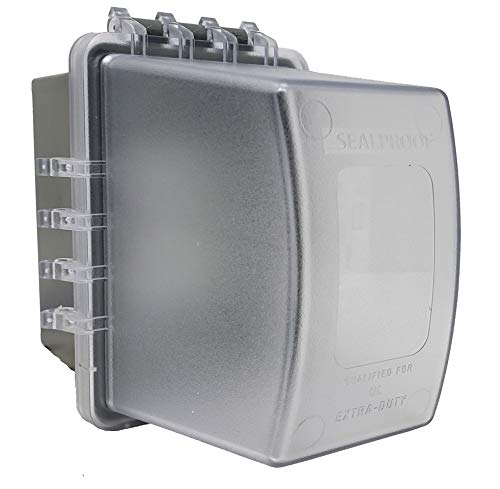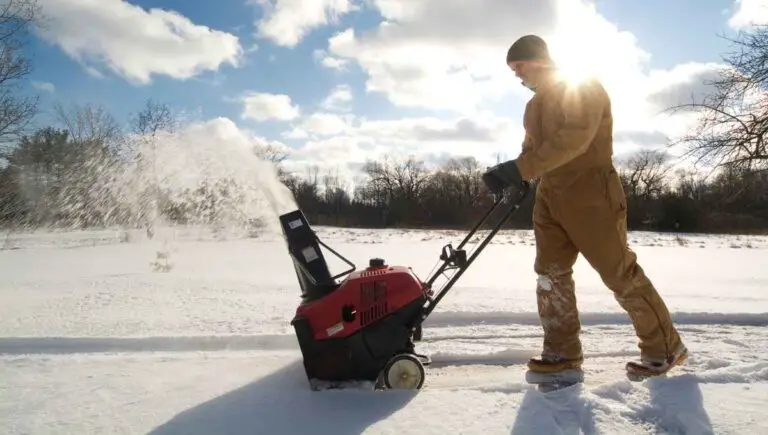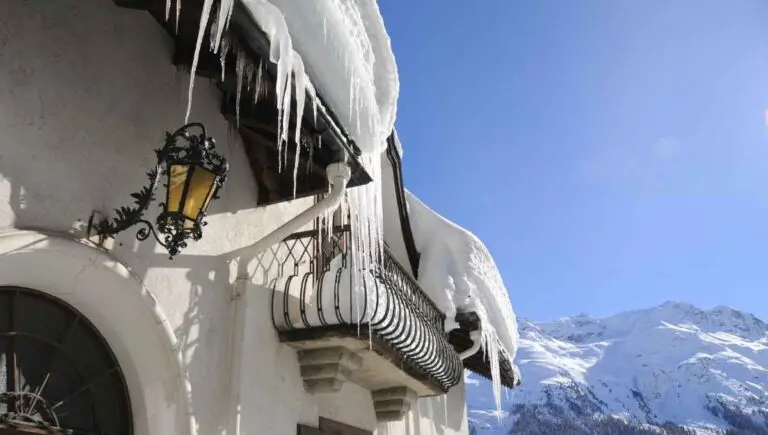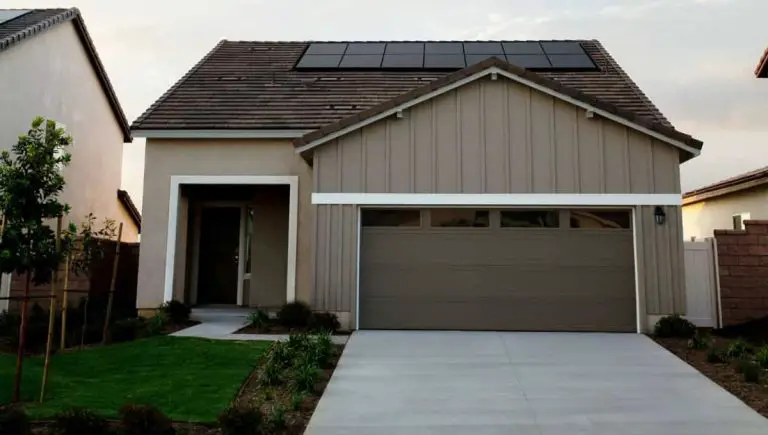Are Outdoor Outlets Safe in Rain? (You Need to Do This…)
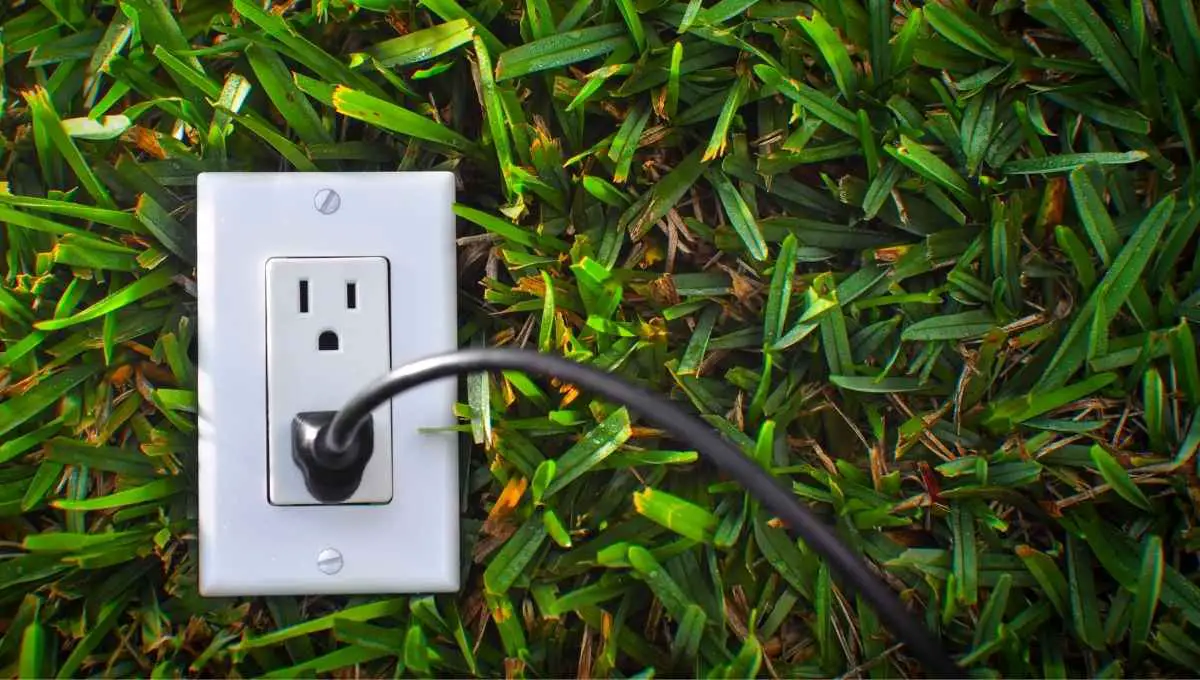
Outdoor outlets can be a real asset to your outside space, but there are some safety factors to be considered before you commit to fitting them to your property. First, you need to ask yourself, are outdoor outlets safe in rain?
Outdoor outlets are safe in the rain, but only if they are adequately protected. In general, you should avoid plugging anything into an outdoor electrical outlet if it’s raining. Have a certified electrician install special outdoor GFCI protected outlets to protect them from the weather.
I bet it is a relief to hear that! But, unfortunately, it does not come without risk whenever you consider mixing electrical outlets with exposed outside areas.
Fortunately for you, this article will outline the safety risks you may encounter and provide you with the information needed to best handle the situation.
This post contains affiliate links from Amazon and other stores. This means Yard Blogger may earn a commission if you make a purchase using any of our links. Please refer to our full affiliate disclosure policy for full details.
Here’s a Quick Pro Tip!
Outdoor outlets are ONLY safe outdoors if you fit a proper cover to them. A cover will protect your outdoor outlet from the elements that have the potential to cause an electrical fire if they were to come in contact with the live wires inside your outlet.
Here are some of our favorite outdoor outlet covers from Amazon:
1. Metal Weatherproof Cover – An excellent heavy-duty option with a lock
2. UltraPro Cover – Highly rated cover perfect for wet locations
3. Weatherproof Cover Two-Pack – An excellent bulk deal
Are Outdoor Outlets Safe?
The world of outdoor outlets may seem daunting. Perhaps your initial safety concerns filled you with dread, creating a situation you avoid thinking about.
However, it is pretty simple if you follow a few easy precautions. Read on to learn how to keep your outdoor outlets safe.
Are Outdoor Outlets Waterproof?
By themselves, outdoor outlets are not waterproof. However, there are some straightforward ways to waterproof your outdoor outlets effectively that you can start implementing today.
One easy example of waterproofing your outdoor outlets is fitting them with an adequate cover. An adequate cover will make it difficult for outdoor elements to reach the electrical wires of the outlet, creating a more safe situation.
How Safe Are Outdoor Outlets?
Generally speaking, all newly fitted outdoor outlets are safe as long as they are fitted following the National Electrical Code (NEC) regulations. Doing so means your outdoor outlets can be just as safe as those you use indoors.
There are clear rules that outline the standards outdoor outlets have to meet, and this is to keep homeowners safe.
Additionally, modern outlets are fitted with safety features that stop the power supply to the outlet and the appliance if they sense a problem with the route the power is taking.
Are Outdoor Outlets Safe in Rain?
Uncovered outlets are not safe when exposed to the rain. Therefore, you must protect your outlets adequately when they are located outside. Protecting your outlets from the weather will keep you safe. Additionally, it will extend your outlets’ life expectancy.
Following the National Electrical Code (NEC) when installing outdoor outlets is essential. Following the clear guidelines provided will make sure the outlets fitted to the exterior of your property are protected from the rain.
How to Protect Outdoor Outlets From Rain
This section will help you better understand how to protect your outdoor outlets from the rain—outlining the regulations that should be followed when fitting outdoor outlets and providing you with information on the options available.
Can You Cover an Outdoor Outlet?
You can indeed cover an outdoor outlet! The guidance on how to best cover your outlet changes depending on where your outlet is located outside, whether that is a wet or damp location.
You probably think you have been told to keep water away from all things electrical ever since you can remember, right?
So naturally, therefore, you must think it is unrealistic to have power outlets outdoors, where there is potential for them to get caught in some pretty treacherous conditions.
Well, that is just not the case. There are valuable products such as covers to help you ensure you’re providing your outlets the protection they require.
How Do You Prevent Elements From Getting Into My Outdoor Outlet?
The best way to prevent the elements from getting into your outdoor outlet is by ensuring they are fitted with an appropriate outlet cover. The type of cover that your outlet must have is dependent on the location of the outlet itself.
The two locations where you are most likely to find outdoor outlets are damp and wet locations.
The National Electrical Code (NEC) highlights the difference between wet and damp locations and provides regionally adapted advice about protecting outdoor outlets.
How to Protect Outdoor Electrical Outlets
You can protect your outdoor outlets by following all the National Electrical Code (NEC) guidelines and fitting all necessary covers.
The best way to protect your outdoor outlets is by providing them with an appropriate cover. Read on for more information on which type of cover is most appropriate for your outdoor outlet.
Should Outdoor Electrical Outlets Be Covered?
Covers keep the elements out of your outdoor outlets. You will meet the NEC’s regulations and protect your safety by providing them with a cover.
By covering your outdoor power outlets, you minimize the risk of moisture reaching the electrical current; keeping moisture out of your power outlets will keep you and your family safe from potential electrical fires.
You might also enjoy our post on If Your Neighbor Can Steal Your Electricity
Weatherproof Outdoor Power Outlets
Outdoor power outlets by themselves without a protective cover are not weatherproof. To protect your outdoor power outlets from the weather, you should fit a protective cover, such as a bubble cover.
However, they are fitted with a safety feature that cuts the power if it detects it has come into contact with weather conditions such as rain.
Therefore, you must take all the necessary steps to protect your outdoor power outlets.
Outdoor Outlet Covers
There are two types of outdoor outlet covers. The first is a flat plastic cover used to protect outlets from the weather when not in use. The second type of cover is a sealed flip-up cover that protects outlets while being used and when not in use.
Covers must be used to protect outlets exposed to the elements to keep the user safe and ensure you abide by Health & Safety Regulations. The type of cover needed for your outdoor outlet will depend on its location.
Can I DIY a Cover Installation on Outdoor Outlets?
Outlet covers reduce the risk of electrocution and electrical fires by protecting the electrical current from being exposed to moisture. If you were to attempt to DIY a cover, there would be no guarantee that your safety wouldn’t be compromised.
Let’s not get carried away. Electrical covers are designed to keep you safe but do you want to be taking your safety into your own hands?
We do not recommend that you try to create a cover for any of your outdoor outlets yourself.
Outdoor outlet covers are designed to protect human life. However, if you are not a trained professional, you could be exposing yourself to the risk of electrocution and allowing your property to become vulnerable to an electrical fire.
What Is a GFCI Outlet?
GFCI is short for Ground Fault Circuit Interrupter (GFCI). This type of outlet is specifically designed to help the user avoid electrocution.
When a GFCI outlet senses that a person’s body is receiving a shock, the outlet cuts the power immediately, preventing electrocution and ultimately saving their life.
Since GFCI’s consumer product, electrocution has dropped by 95%, but keep in mind that 50% of American homes were built before GFCI’s were introduced in 1971.
If you want to find out if the existing outlets outside your home are GFCI’s, you can look for the test and reset buttons on the outlets themselves. If you are still unsure whether your home is fitted with GFCI’s, it is best to speak to a professional electrician.
Ground fault circuit interrupters work by measuring the amount of power flowing through a circuit. When the GFCI identifies that the power’s route to the ground is not the intended path, it cuts the power.
Ground fault circuit interrupters are permanently installed in environments where outlets are at an increased risk of being exposed to water. I know what you are thinking. GFCI’s are clever, right?
What Does the National Electrical Code Say About Outdoor Outlets?
The NEC states that all outdoor outlets must be ground fault circuit interrupters (GFCI’s) and have different restrictions on fitting outlets in both wet and damp areas.
Outlets fitted in damp areas must have a waterproof cover. This is, at minimum, a flat plastic cover that protects the outlet from the elements when it is not in use.
Damp locations are outside areas sheltered from the weather, like those under a roof in an outside cooking area.
Whereas outlets fitted in wet locations require a different type of cover, this type protects them when in use and not in use. These are commonly known as bubble covers.
Do I Need a Bubble Cover for My Electrical Outlet?
All outlets fitted in wet locations must have a sealed in-use cover that protects the outlet. This type of cover also protects the outlet when it is not being used.
Outlets fitted in wet locations have no other protection from the weather. These outlets rely on their cover to keep them dry and their user safe.
Bubble covers, otherwise known as extra duty covers, are usually made of clear or smoked plastic. These covers usually come in several different designs.
It is essential to make sure your design is compatible with your outdoor outlet.
What to do When Your Outdoor Outlet Gets Wet
This section will look at what happens if your outdoor outlets get wet and identify the risks wet outlets pose. Additionally, we will walk you through what you should do if the situation arises.
What Happens if an Outdoor Outlet Gets Wet?
If your outdoor outlet gets wet and it is a GFCI, the power supply to the outlet will be stopped. If your outlet gets wet and is not a GFCI, you risk an electrical fire or electrocution.
When an electrical outlet gets wet, things get dangerous. A wet outlet poses a risk of both an electric shock and of starting a fire. On top of this, a wet electrical outlet will need to be repaired or replaced by a professional.
But, come on. If you think that one of your outdoor outlets has gotten wet, then the least of your concerns should be that the outlet itself has likely stopped working.
It is easier to prevent your outlets from getting wet than it is to have to navigate a situation involving wet outdoor outlets.
You might also enjoy our post on If It’s Illegal to Leave a Refrigerator Outside
What Should I Do if My Outdoor Outlet Gets Wet?
If your outdoor outlet has gotten wet, you must ensure that its power has been shut off. This should have been done automatically. However, if necessary, it can also be shut off manually.
Keep your outlets appropriately covered to prevent any water from getting in. Water getting into an outdoor outlet may cause permanent damage. Here’s what you should do if the worst does happen.
So, your outdoor outlet has gotten wet. The good news is it will likely be a GFCI outlet which means once it detects an interruption in the flow of electricity, it will have automatically turned itself off.
You can also turn the power supply off to your outlet at your breaker box yourself. This will ensure that all electrical current flowing to the outlet has been stopped.
It is crucial to avoid directly touching the outlet if you think it has been exposed to water.
Can Water Cause Electrical Fires?
If your outlets are not adequately protected and exposed to water, they risk starting an electrical fire.
This is due to the wires connected inside the outlet being ‘live’ – meaning that they carry a live electrical current.
In addition, water is a conductor, which means that it allows an electrical current to travel through itself to other materials, which can cause an electrical fire.
How Do I Dry Out an Outdoor Outlet?
It is not recommended that you attempt to dry out an outdoor electrical socket on your own. Instead, you should contact a professional if you believe your outlet has gotten wet.
First, you must check the power of the socket has been turned off. You can do this by looking at your breaker box. If the power supply is still live, turn it off immediately.
Once you have cut the main power supply, avoid touching the outlet directly and leave the outlet to dry for at least 24 hours.
However, we would recommend that you get a professional to look at any outdoor outlet that has gotten wet, preferably replacing the outlet entirely.
Outdoor Outlet Burned
A burned outlet is usually the result of excess heat. This means that the outlet or the appliance you have been using has gotten too hot.
You might be wondering what an outdoor outlet looks like when it has burned. Well, have you ever unplugged an appliance, and there is a dark shape left on the once-white outlet – a shape that mirrors the plug you just removed?
Often this can appear as a blackish/brown color, having even begun to burn and melt the plastic cover of the outlet. Unfortunately, the same scenario can happen to your outdoor outlets.
Prevention is vital when it comes to electrical fires. Picture this scenario:
It is a Sunday morning in early July. You are up and out, ready to cut your grass before the midday heat kicks in.
You have used an array of electrical appliances to achieve that perfectly kept garden that all your neighbors are envious of.
But, unfortunately, once you unplug your final appliance, you realize your outdoor outlet has burned.
This is due to excess heat, usually caused by either a circuit overload or damaged wiring. If this happens to your electrical outlet, we recommend you call out a professional to help you identify the cause and find a solution.
You might also enjoy our post on If You Can Use a Generator in an Apartment
Related Questions
How to Protect Outdoor Outlets From Snow
Fortunately, if your outdoor outlets are protected from the rain through GFCI’s and appropriate weatherproof covers, this also means that your outdoor outlets will be protected from the snow.
Just to remind you, to ensure that your outdoor outlets are protected from the snow, you must make sure all outlets exposed to the snow directly are fitted with an extra duty cover, most commonly known as a bubble cover.
Additionally, you should ensure that your outdoor sockets are ground force circuit interrupters (GFCI’s). Remember, you can check this by looking for a test and reset button.
Final Thoughts
With any luck, this article has reassured you that outdoor outlets are safe in the rain and guided you through how you can make sure your outlets are safe to use outside and meet the National Electrical Codes’s (NEC) requirements.
We hope you now not only understand how to check if your outdoor outlets are weatherproof but also that you know what to do should they become wet.




